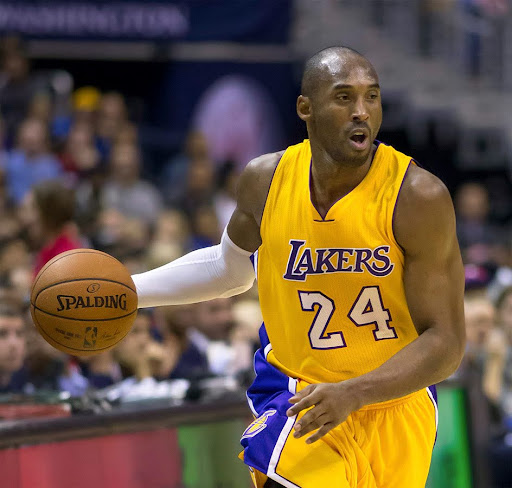Joel Embiid is the reigning MVP of the 2022-2023 NBA season. Coming into this season, no one could have anticipated that he would make another leap, drawing comparisons to Shaquille O’Neal while averaging 35.3 points, 11.3 rebounds, and 5.7 assists per game. After erupting for a career-high 70 points against the San Antonio Spurs, his case for becoming the back-to-back MVP was indisputable. It was Embiid at the top with everyone else racing to catch up.
Everyone was excited to see that on January 27th, Embiid and the Philadelphia 76ers would be playing against former MVP Nikola Jokić and the Denver Nuggets. However, fans were notified just 30 minutes before the game started that Embiid would not play because of knee problems. Everyone called him a coward, pointing out how he never played in Denver since 2019. Fans speculated that he deliberately missed games because he was afraid to play against stronger opponents.
Just 3 days later, Embiid played against the Golden State Warriors. Before the game, Embiid “could barely jump” but ultimately played through it. However, he suffered a knee injury late into the game and underwent surgery to repair it, putting an end to his historic MVP campaign.
Some individuals suspected that public pressure forced Embiid to play even when he wasn’t physically ready. However, it became evident that he felt pressured to return sooner because of the new 65-game rule. The rule states that to make an All-NBA team or win the MVP award, players must participate in at least 65 games (minimum of 20 minutes per game). Considering that teams play 82 regular-season games and players are being paid millions of dollars to do so, 65 games sounds like a reasonable expectation.

From a fan’s perspective, this is a great addition because it motivates star players to play in more games and ensures that they will receive their money’s worth, especially for high-profile matchups. Ultimately, the fans should be prioritized because they generate revenue for the league: as a consumer, I am expecting to receive the product I paid for.
This rule also addresses the growing issue of load management, which is when teams purposefully rest their star players to prevent injury. Recently, the NBA sent teams data from an independent research study showing no correlation between load management and a decreased risk of injury. By setting a minimum game requirement, the league aims to reduce the frequency of these strategic absences. In recent years, fans have become uncertain whether their favorite players would play in certain games. The unpredictability of star player appearances undermined the value of their investment in tickets.
The issue at hand is not about players missing games because of serious injuries or personal reasons. Rather, it is about players voluntarily opting to miss these games. Many view this as a disservice to both the game and its fans, especially when considering the incredible work ethic of those from previous eras. Superstars such as Kobe Bryant epitomized a relentless, “play through the pain” mentality. When asked why he pushes himself through injuries and refuses to sit out games, Bryant famously responded, “What about the fans that saved up to watch me play just once?”
This also reminds us that “the best ability is availability.” Consider a scenario where an all-star level player participates in 75 games compared to an MVP caliber player who plays in 50 games. The first player not only contributes more consistently to their team but also serves as a more reliable option for fans and the league. Simply being available ensures a level of engagement that is necessary for team success and overall fan experience.
These athletes, who pushed themselves to their physical capabilities while leaving everything on the floor, set a standard for future generations. However, this perception eventually changed as a result of an improved understanding of sports science and shifts in societal expectations. In modern times, there has been an increasing awareness around the long-term impacts of neglecting physical and mental health. The emphasis on injury prevention and management in sports reflects the broader shift towards maintaining a proper work-life balance.
While the 65-game rule is designed to enhance fan engagement by ensuring that star players participate in a substantial number of games, it is important to consider the long-term implications of this rule on the players and their health. From a business standpoint, the players are valuable assets that fuel the league’s overall success. If players are forced to return prematurely and play through the pain, they may not perform at their best and can impact the quality of the game for fans.
For example, Tyrese Haliburton is an up-and-coming star from the Indiana Pacers. If Haliburton continues this incredible level of play, he would qualify for All-NBA_Team honors and be rewarded with the maximum amount of money. After experiencing a hamstring injury in January, Haliburton explained how he constantly felt pressured to return sooner because of the rule. With $41 million at stake, he cannot miss more than 3 games from now on. This ultimately raises questions about how to provide fans with the best experience possible without jeopardizing the careers of the athletes.
The NBA is a premier sports league: the average salary of $9.7 million is much higher than other professional sports, a testament to the high level of skill being showcased. Players should be expected to present the best possible work on the court for fans who consistently support them. Ultimately, the new 65-game rule should enhance the integrity and appeal of the game: balancing the expectations of fans with the health of players is key to the future of the league.

